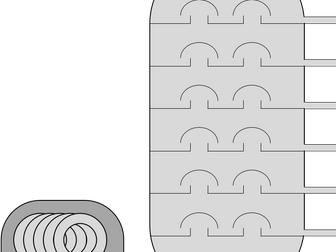Fractional distillation cut and stick
This is an excellent overview of the process used to separate crude oil by fractional distillation. It covers the terms viscosity and volatility and aims to get student linking them to boiling point and chain length. It was designed to go with the new AQA GCSE syllabus in the Crude oil and hydrocarbons topic.

